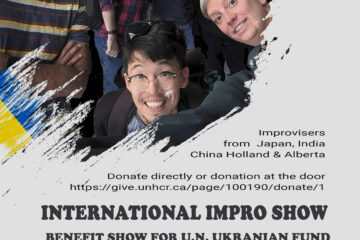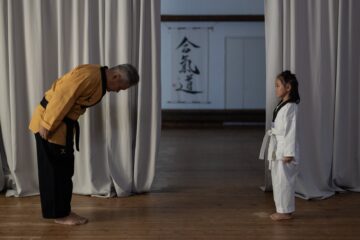THOUGHTS, IDEAS, QUESTIONS, PROCESS, LESSONS,
Student Post
Performing and Practicing
PAUL ROBINSON – Week 8
“In Tibet, new leather skins are put in the sun and rubbed with butter to make them softer. The practitioner is like the new skin, tough and hard with narrow views and conceptual rigidity. The teaching (dharma*) is like the butter, rubbed in through practice, and the sun is like direct experience; when both are applied the practitioner becomes soft and pliable.
“But butter is also stored in leather bags. When butter is left in a bag for some years, the leather of the bag becomes hard as wood and no amount of new butter can soften it. Someone who spends many years studying the teachings, intellectualizing a great deal with little experience of practice, is like that hardened leather. The teachings can soften the hard skin of ignorance and conditioning, but when they are stored in the intellect and not rubbed into the practitioner with practice and warmed with direct experience, that person may become rigid and hard in his intellectual understanding.
“Then new teachings will not soften him, will not penetrate and change him. We must be careful not to store up the teachings as only conceptual understanding lest that conceptual understanding becomes a block to wisdom. The teachings are not ideas to be collected, but a path to be followed.” -Tenzin Wangyal
Performance and Practicing
Personally, I have found I learn the most as a performer when I am performing and rehearsing. Performing without practice makes me ignore my bad habits. Practising without performing makes me clumsy and slow. (In both cases, that may say more about me than it does about practice and performance in general.) On the whole, I have done significantly more practising than performing in the past two months.
Can you be a great improviser without practicing? I expect the answer to that question is no. Certainly, there are some people who take to improvisation quickly, but practice in improvisation is so broad that a way of thinking, feeling, and being in the world can amount to practice. There are also improvisers who have attended workshops for years but struggle every time they get on stage. Workshops themselves can be detrimental to improvisation if they are dogmatic and not tailored to the students. To borrow Wangyal’s metaphor, too many workshops can make the practitioner stiff and unchanging.
Can you be a great improviser without performing? Keith Johnstone famously didn’t perform, but I expect that he is one of the rare exceptions to prove the rule. And even then, he read thousands of plays for the Royal Court Theatre, traveled with Theatre Machine, and directed plays. In general, I think that the absence of performance makes people intellectualize something that experiential. Again, using Wangyal’s metaphor, just as the absence of sunlight can harden leather, so to does the absence of performance harden an improviser.
The ideal case is to practice and perform. I regret that I will have only been on stage three times by the end of these two months. My lesson in Calgary is: I am too passive. I volunteered a lot, but volunteering does not open any magic doors. In retrospect, I would have contacted all the people who cast shows in the area to see where and how much I could play, and then setup some little shows in cafes, or bars, or bookshops or in the street.
My first piece of writing here was an invocation to let the past die; unfortunately, I have discovered my past clings to me. I am like a stiff piece of leather, I block myself from wisdom. I hope that in my next chapter I can experience enough ‘sunlight’ to become flexible again.




0 Comments